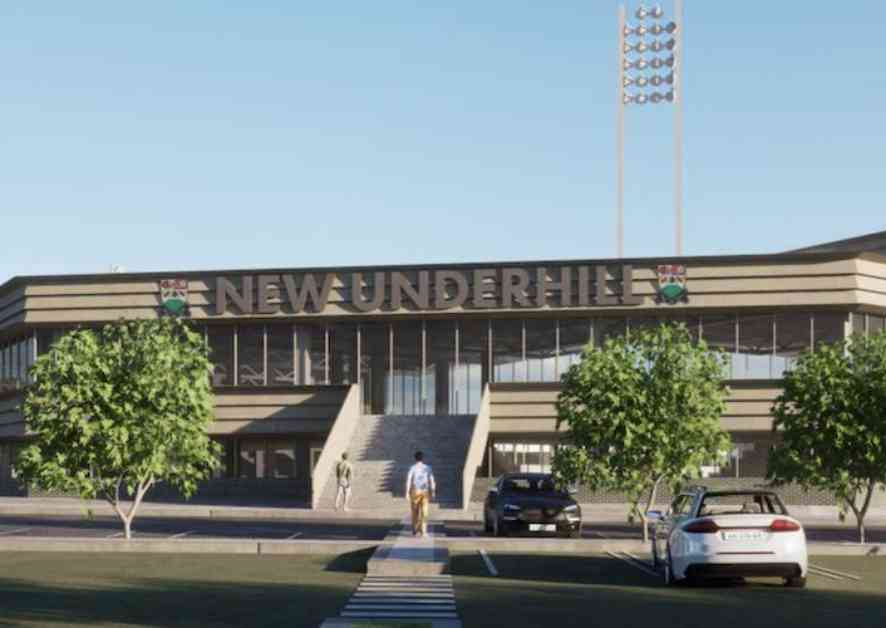For fans of Barnet Football Club, the familiar chant of “Underhill, Underhill, We’re the famous Barnet FC and we come from Underhill” holds a special place in their hearts. Yet, the reality is that the club has been without a permanent home since April 2013 when they played their final game at Underhill, a historic location that had been their base since 1907. While the club’s roots in the north London borough date back to the 1880s, they have been in exile in Harrow for the past decade. However, there is renewed hope for a return to their beloved borough, a move that could change the course of Barnet FC’s future.
The past ten years have been challenging for Barnet FC. Despite the growing popularity of football, attendance at their new ground, the Hive, has been dwindling. Overall, attendance is down 22 percent compared to their final years at Underhill, with home supporter numbers declining by nearly 30 percent. The club’s fan base remains rooted in Barnet, and the lack of regular travel across the borough boundary has been evident. The disconnect between the club and its community has had financial implications, with lower season ticket sales and sponsorship leading to losses of up to a million pounds annually. While the team’s performance in the National League has been commendable, the absence of a stadium within its community has taken a toll on the club’s identity and financial stability.
The prospect of a new £14 million, 7,000-seat stadium on council-owned playing fields south of the club’s former site has sparked optimism among Barnet FC supporters. Club owner Tony Kleanthous unveiled plans for the stadium last year, highlighting its potential to secure the club’s future and benefit the local community. The proposed development aligns with the notion that football clubs serve as cultural assets within their communities, fostering civic pride and identity. The emotional attachment between a club and its locality underscores the significance of bringing Barnet FC back to its roots, a sentiment championed by the Bring Back Barnet campaign.
Community Impact and Economic Benefits
Football clubs are more than just sports entities; they serve as pillars of their communities, generating economic opportunities and fostering social cohesion. The proposed stadium project promises to create jobs, stimulate the local economy, and provide public health facilities. By rewilding the stadium surrounds and offering access to school and community groups, the project aims to enrich the lives of residents beyond match days. With strong public transport links and a strategic location within the council’s Local Plan for a sports hub, the stadium proposal is positioned to deliver lasting benefits to the borough.
Challenges and Future Prospects
While the vision of a new stadium holds promise for Barnet FC, challenges lie ahead in securing approval for the development. The proposed site falls within the borough’s Green Belt, necessitating a compelling case to justify the project’s impact on the environment. With opposition mounting from groups advocating to “save Barnet playing fields,” the club faces a rigorous planning process to demonstrate the “very special circumstances” required for Green Belt development. Drawing parallels to recent decisions in neighboring Enfield, where Tottenham Hotspur FC navigated similar challenges, Barnet FC must navigate a complex landscape of policy and community sentiment to realize their dream of returning home.
As the club continues its winning streak in the National League, the prospect of promotion to League Two looms large. However, the ultimate prize for many Barnet FC supporters remains the return to their beloved borough. The journey back to Barnet is not just about a stadium; it is about reclaiming a sense of identity, pride, and community that has defined the club for generations. The battle for a new home is not just a matter of bricks and mortar; it is a testament to the enduring spirit of Barnet FC and the unwavering loyalty of its fans. As the club navigates the twists and turns of planning decisions and public opinion, the dream of Barnet FC back in Barnet remains within reach, a beacon of hope for a brighter future.





















